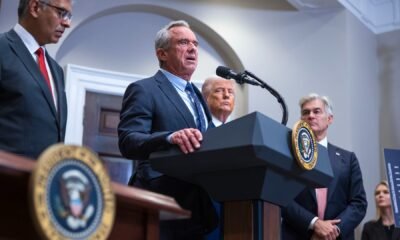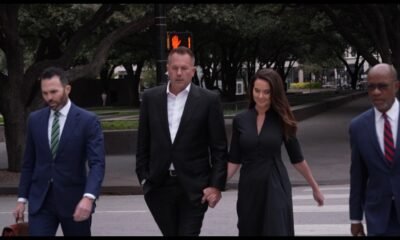2024 election
AZ Veterans Unmasking the Mirage of ‘Fake News’

As the November elections draw near, Arizona faces a critical issue: the rising threat of online disinformation. Historically, military bases would shoot down adversaries dropping propaganda from the skies. Today, the battlefield has shifted to cyberspace, where misleading narratives proliferate with alarming ease.
This battleground in the media landscape is particularly perilous for Arizona, a key player in deciding the next U.S. president. State residents are already witnessing targeted campaigns designed to exacerbate fears, polarize communities, and disrupt rational discourse.
For instance, when election workers begin counting ballots at the Maricopa County Tabulation Center next month, they will be shielded by bullet-proof glass, two layers of fencing, and surveillance drones. The heightened security responds to the wave of false claims circulating online that have undermined public confidence in the electoral process.
Arizonans, from veterans to everyday citizens, now grapple with the daunting task of discerning truth from falsehood in a rapidly evolving information environment. As we confront this challenge, history offers some lessons. Long ago, Arizona’s media landscape operated under standards of public decency and fairness. Regulations like the Fairness Doctrine once ensured diverse perspectives on critical issues, fostering a more informed public.
Today, however, social media platforms lack these safeguards. On sites like Facebook and Twitter, reliable information often gets lost amid sensational and misleading content, creating a confusing mix that can mislead even the most vigilant consumers.
In previous decades, newsrooms adhered to the principle of prioritizing impactful stories. Yet, today’s digital ecosystem thrives on engagement metrics, often at the expense of accuracy. Algorithms favor sensationalism, enabling the rapid spread of disinformation.
The 2016 presidential election underscored this challenge, exposing vulnerabilities in the democratic process. An extensive investigation by former FBI Director Robert Mueller revealed how foreign entities, particularly Russia, sought to sow discord and undermine faith in democratic institutions through social media manipulation.
This legacy of disinformation persists, epitomized by the continued promotion of “The Big Lie,” an unfounded assertion that the 2020 election was fraudulent. This narrative is perpetuated not only by right-wing media but amplified by foreign operatives, further corroding public trust.
In response to these challenges, a coalition of veterans from diverse political backgrounds has emerged to counter disinformation. This group has initiated a pledge for individuals across the political spectrum to uphold the sanctity of the 2024 election results and reject violence.
Additionally, efforts are underway to educate the public about political misinformation. A series of explainer videos and resources from the Veterans Administration provide tools for identifying false narratives. For instance, the VA recommends a deliberate approach when consuming news, encouraging individuals to verify claims through reputable sources before accepting them as fact.
The VA also promotes its THINK checklist, a tool designed to help individuals evaluate information: T for True, H for Helpful, I for Inspiring, N for Necessary, and K for Kind. By assessing these criteria, Arizonans can better navigate the complex media landscape.
As Arizona continues to confront the realities of disinformation, the fight for a healthy democracy remains a shared responsibility. With collective vigilance and commitment, the challenge of misinformation can be addressed. In the words of Abraham Lincoln, “not everything you read on the Internet is true.”


















